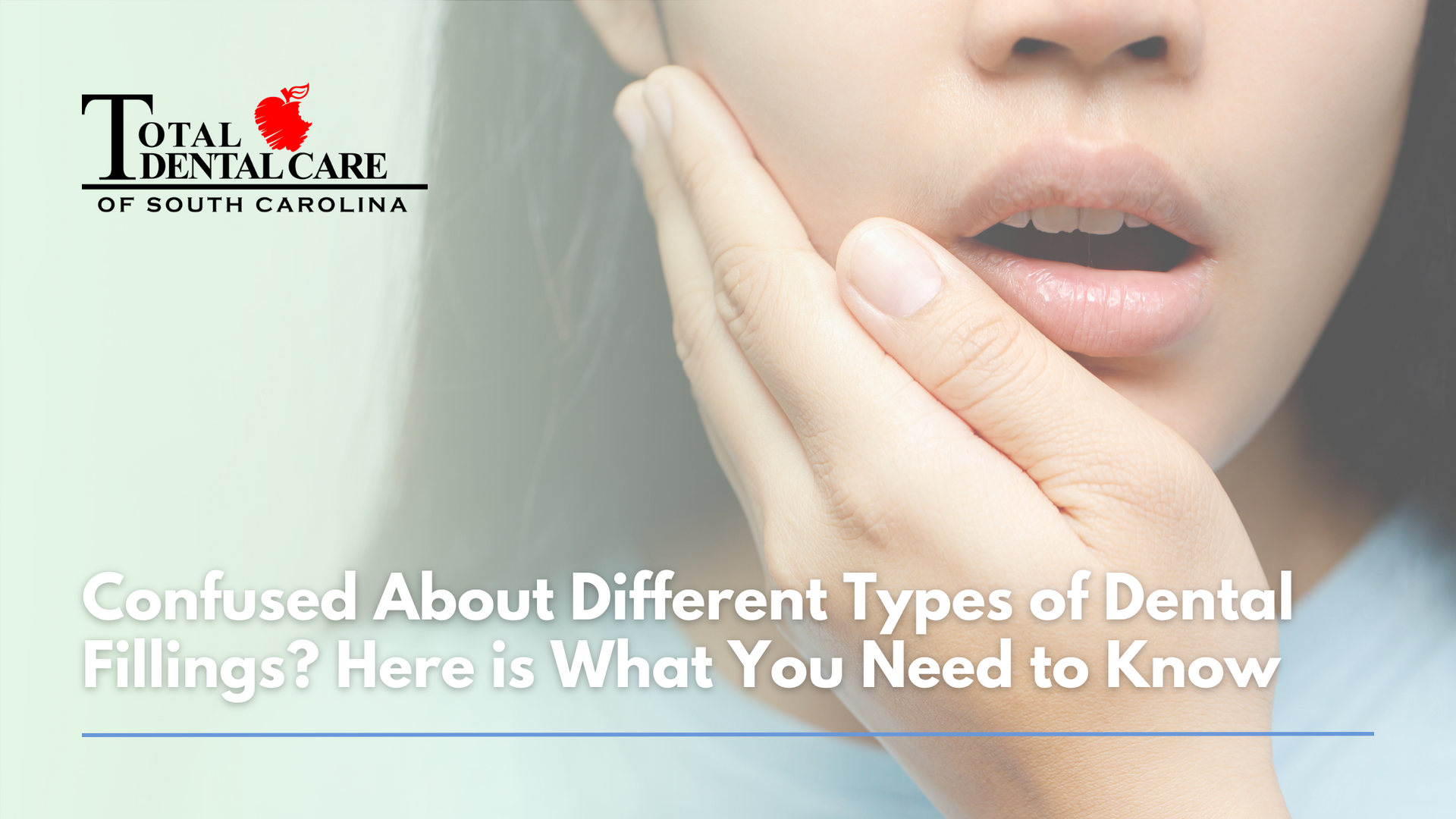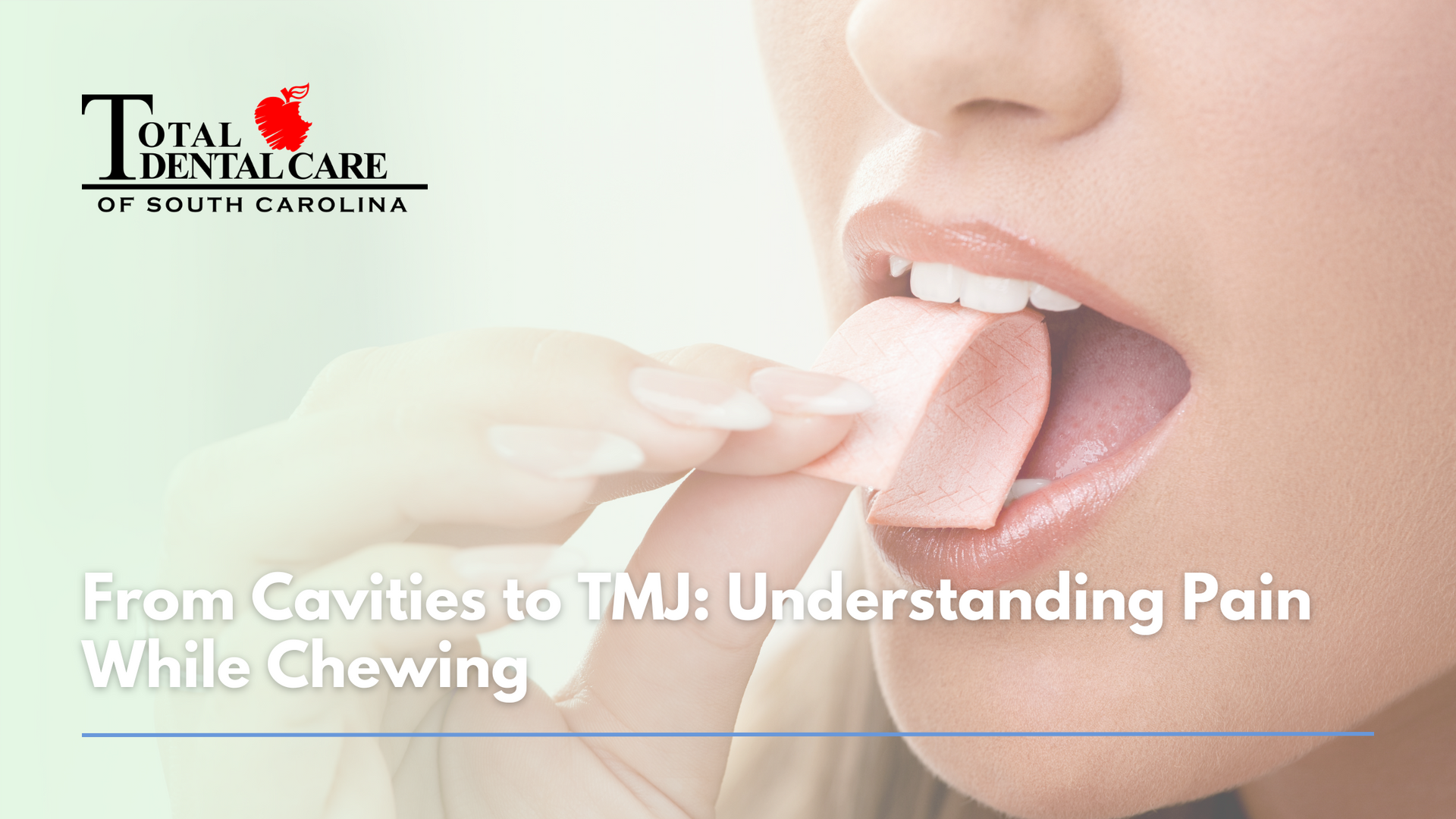Get Relief From TMJ At The Dentist Office
We would like you to meet Sam.
Sam has woken up most mornings this month with a headache. He usually takes some over-the-counter medicine before he takes his morning shower.
He used to fix a toasted bagel for breakfast, but now he eats oatmeal. He’s learned that his jaw doesn’t hurt as much when he eats soft, mushy foods.
A lot of days, he goes to lunch with a few of his co-workers. He used to enjoy it, but now he worries. He tries to hide it, but sometimes his jaw hurts after he’s eaten anything that requires a lot of chewing.
Sam may not realize it, but he could have a TMJ disorder . He could use the help of a dentist. If he lives in or near Columbia, SC, then he should call Total Dental Care of South Carolina.
Sam is not a real person, but we have treated patients with similar problems. If Sam’s problems sound familiar, then we want to help you, too.
What Is Causing Your Problem?
The problems lie in the two joints that connect your lower jaw to your skull. These are your temporomandibular joints. This is the TMJ in TMJ disorder.
These are ball-and-socket joints. The make it possible to move your lower jaw up and down and from side-to-side.
TMJ problems can arise for any of the following reasons or a combination of reasons:
◆ Arthritis
Various types of arthritis can cause an inflammation of the temporomandibular joint. This can cause pain or limit your jaw mobility.
◆ Injuries
Any injury to your head can cause trauma to your TMJ. It does not necessarily have to involve a direct impact on your jaw.
◆ Infections
Some kinds of bacteria can invade your TMJ, causing infections that affect how well you joint functions.
◆ Teeth Clenching and Grinding
Millions of Americans clench and grinding their teeth. This puts added pressure on your joints and added tension on the muscles around them.
To help you understand the stress you joint may be under, a healthy person generates up to 250 pounds of pressure per square inch when he or she chews food. When you clench or grinding your teeth together, you may be pressing with up to 900 pounds of force.
When Are You Grinding Your Teeth?
Teeth grinding can occur when you are awake or while you are asleep.
If this is happening in your sleep, you may do this for hours every night. (This would explain your frequent morning headaches.)
If this is happening while you are awake, then it may be your way of coping with stressful situations.
Use of stimulants can make you more likely to clench or grind your teeth. These include tobacco products, caffeine, alcohol, and various illegal substances.
The Symptoms Of TMJ
The symptoms of a TMJ disorder (which is also called a TMD) include a number of things. Many of them involve pain, but not all of them do.
We previously mentioned frequent headaches as one possible sign of a TMJ disorder. This could be dull, almost constant headache, or it may be something more severe, like a migraine.
Earaches are another common TMJ problem. So are pains in your jaw, face, neck, or shoulders. You may notice this after a stressful event, during a meal, or after you finish eating.
Limited movement of your jaw is another familiar TMJ symptom. You may have trouble opening or closing your jaw completely. At times, your jaw may feel like it is stuck in one position.
Some patients also feel a popping or clicking sensation when they open or close their mouths.
When To See A Dentist
TMJ problems aren’t necessarily a TMJ disorder. Some people can alleviate the symptoms by sticking to softer foods, taking pain medicine, or taking some time to relax to relieve stress.
If you have done these things, but your symptoms keep coming back, that’s when you need to get help from us.
We will examine your jaw and mouth, including looking for signs that you are grinding your teeth. If that is the situation, we can create an oral appliance for you to wear.
This will protect your teeth by preventing them from touching one another. This also will retrain your jaw to rest in a different position. This is intended to alleviate the added pressure you are putting on the joint and the surrounding muscles.
Ease Your Pain
If your TMJ symptoms won’t go away or recur frequently, contact Total Dental Care of South Carolina in Columbia. Our dentist will do everything we can to alleviate your symptoms and resolve your problem.
If you would like to live with less pain, call 803-272-4162 or make an appointment with our online form .
The post Get Relief From TMJ At The Dentist Office appeared first on Total Dental Care of South Carolina.



We are the local Columbia dentist near you!
Smile more and smile often.
Request A Dental Appointment
We look forward to seeing you soon!
Please note, we will try our best to accommodate your schedule.
Regarding insurance, we accept all PPO insurances, but are considered out-of-network for most plans. We are only in-network with Delta Dental. As a courtesy to all of our patients (in/out of network), we take care of the claim filing and processing. We do not currently accept patients on Medicare or Medicaid.
Thank you so much for contacting our dental practice. While we strive to respond to all inquiries right away, we may be away from the desk helping a patient or out of the office. We will do our best to reach back to you shortly.
Please note, if this is a dental emergency, it would be best to call our practice as this is the fastest way to reach us (803) 798-1670.
Please try again later
Columbia Dentist
We understand that trying to find a nearby dentist you can trust is difficult, that is why we make it easy for you to work with us.
(803) 798-1670
1061 St Andrews Rd, Columbia
info@getabettersmile.com
Helpful Links
Dental Practice Hours
- Monday
- -
- Tuesday
- -
- Wednesday
- -
- Thursday
- -
- Friday
- Appointment Only
- Saturday
- Closed
- Sunday
- Closed
All Rights Reserved | Total Dental Care of South Carolina
All Rights Reserved | Total Dental Care of South Carolina
Dentist Website Diagnosed, Treated, and Cured by Dr. Marketing Inc
